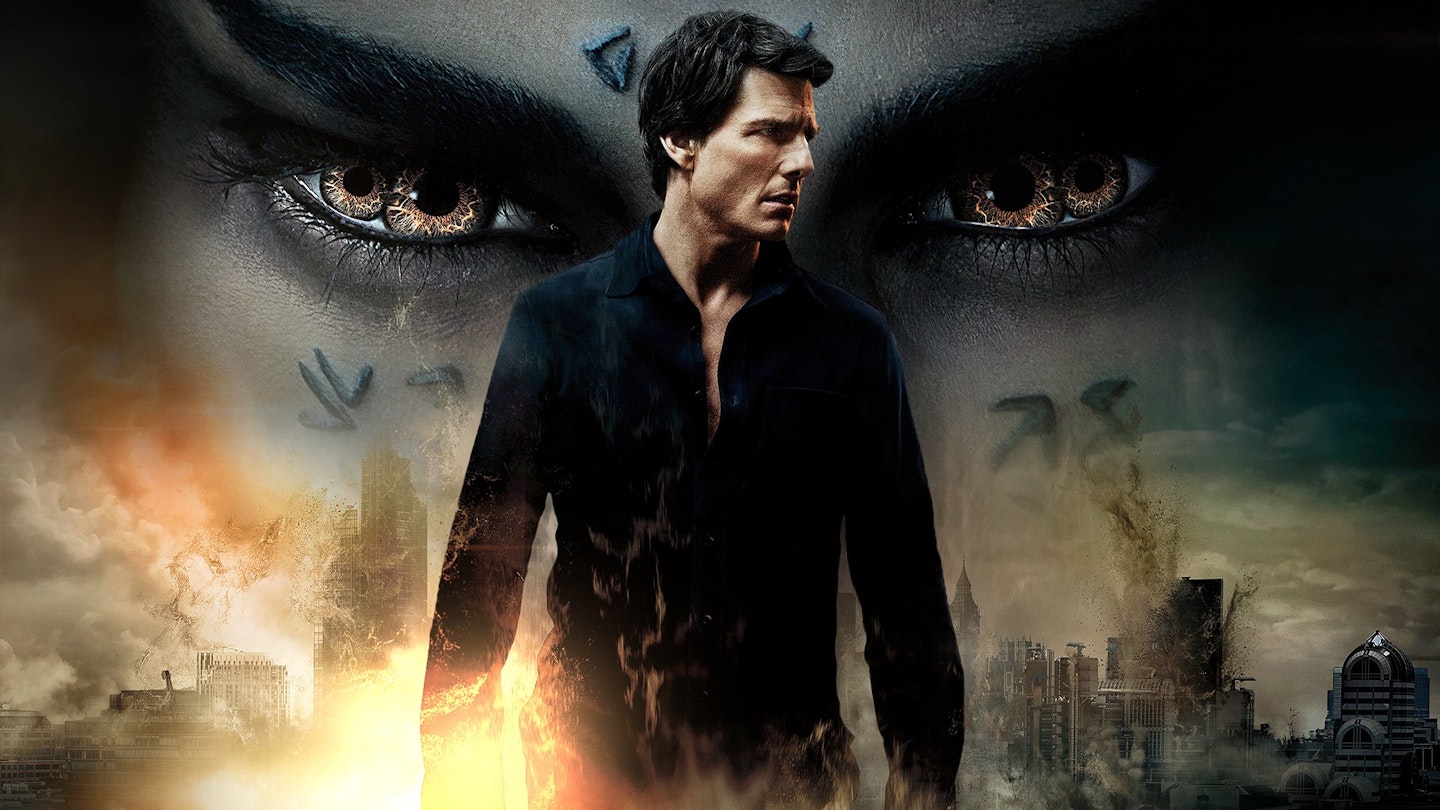Heralding a new era of movie gods and monsters, Alex Kurtzman's The Mummy begins a planned new series of interconnected films reviving Universal's classic creature pantheon. During the flm's post-production, Empire got the lowdown from the director himself.
It feels like audiences don’t necessarily know what to expect from a Mummy film. There’s not a set source like Dracula or Frankenstein****.
Well I love that you feel that way. I guess it depends on who you ask. What are you thinking when you say that?
Well the original film is essentially a romance, and then its sequels are sort of film noir/crime stories. Then the Hammer films are proto-slasher movies, and the Stephen Sommers ones are Indiana Jones adventures. It seems like a Mummy film can be anything.
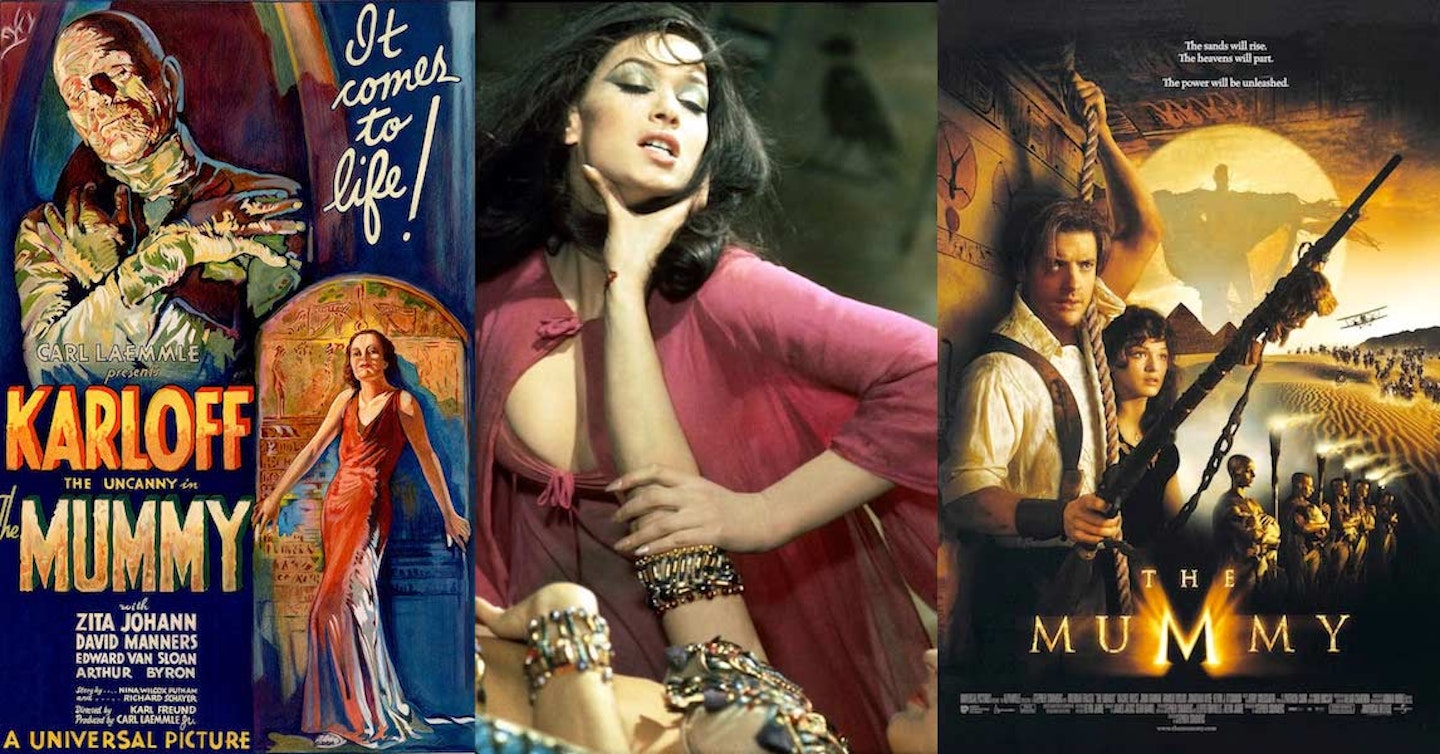
I see what you’re saying. I think, in a funny way, that’s what’s wonderful and unique about the franchise over all that time. I think what that speaks to in a lot of ways is that there are a lot of things that harness the identity of the Mummy. To me, some of the staples are that there absolutely is a romantic element to it. For me, the Karloff Mummy is a big touch point. That’s a character with a really compelling back-story who ultimately wants what really everybody wants, which is to be loved, and he has been loved and suffered as a result of that love and yearns to have it back. Which makes the monster extremely relatable. I think what all the Universal monster movies are defined by, and what makes them very special, is that it’s really the only genre entirely unto itself, in which you fear the monster and fear for the monster. That’s a very hard thing to do. To fear for and fear at the same time is extremely unique.
What I’ve always loved about the Universal monsters too is that each one was a very specific character who wanted something that was entirely relatable, but maybe went about getting it in a way that made them a monster. For the Mummy, a lost, broken, yearning romance is a big part of it. I think that there’s also a globetrotting nature to The Mummy that to me is a fairly important part. But mostly, I think the thing that I have been focused on more than anything is that the bad guy has a really, really good reason to be where she’s at. I think if the audience can relate to her and what she’s been through, and experience the weird, confusing universal feeling you get of loving and caring about the monster, then hopefully I will have succeeded.
How are you balancing what you’ve just talked about with the horror and the spectacle?
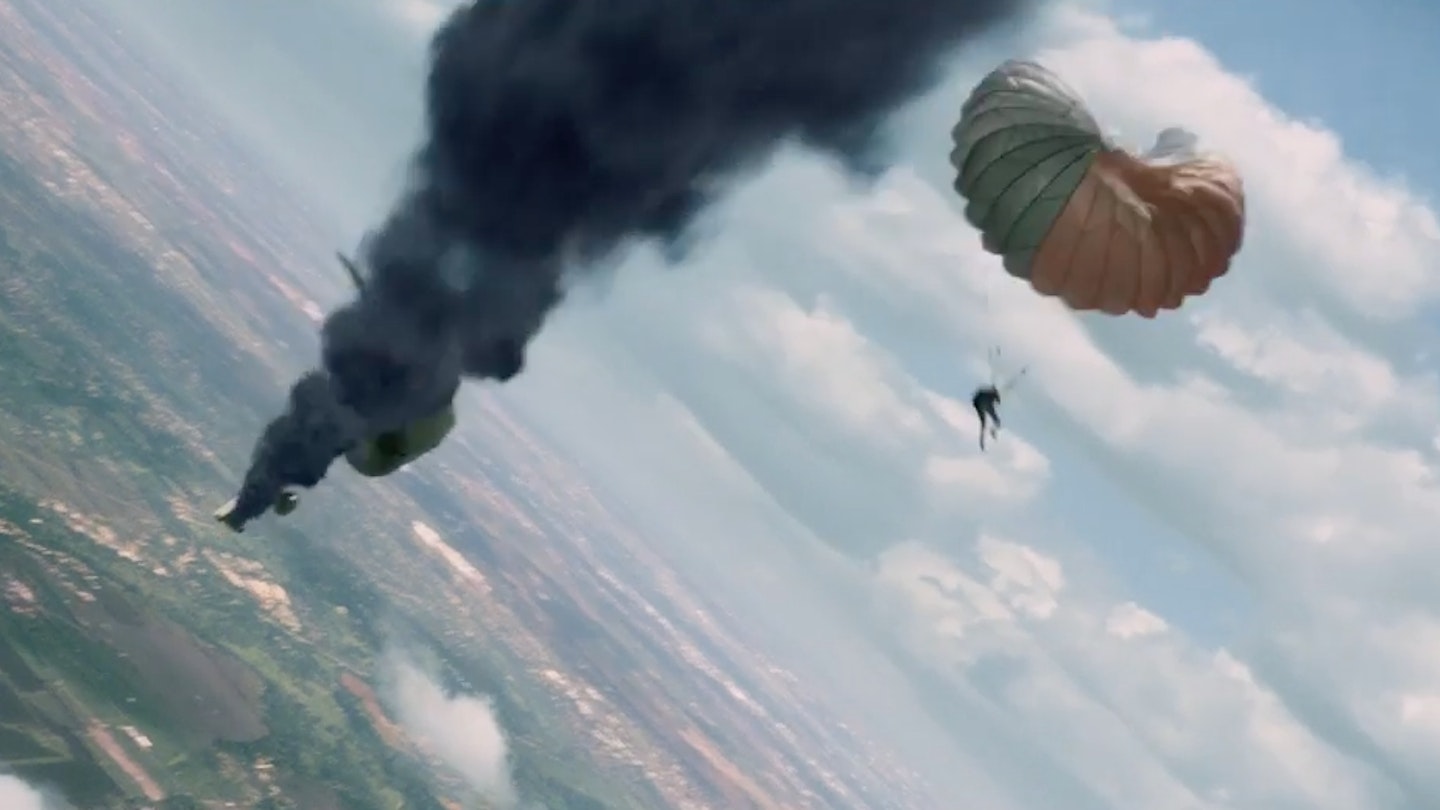
Well, I’m not going to lie to you, it is huge. There’s no question about it. The thing for me, and I can only really judge this by what I respond to myself as an audience member, I really only respond to a movie if I’m interested in the people who are in it. It’s really that simple. If I’m not, then it’s all noise. What we’ve all endeavoured to do in every way is make everybody in this movie a character you care about, so that when you get into the scope and the action and the threat, there are real stakes. And not stakes like, 'Oh, she’s going to blow up the world.' It’s more like, 'I care so much about this person that if this person dies I’m going to really feel bad!' That’s the standard by which all our choices have been measured.
It’s unusual for you not to be credited as a screenwriter. Did you do uncredited screenplay work?
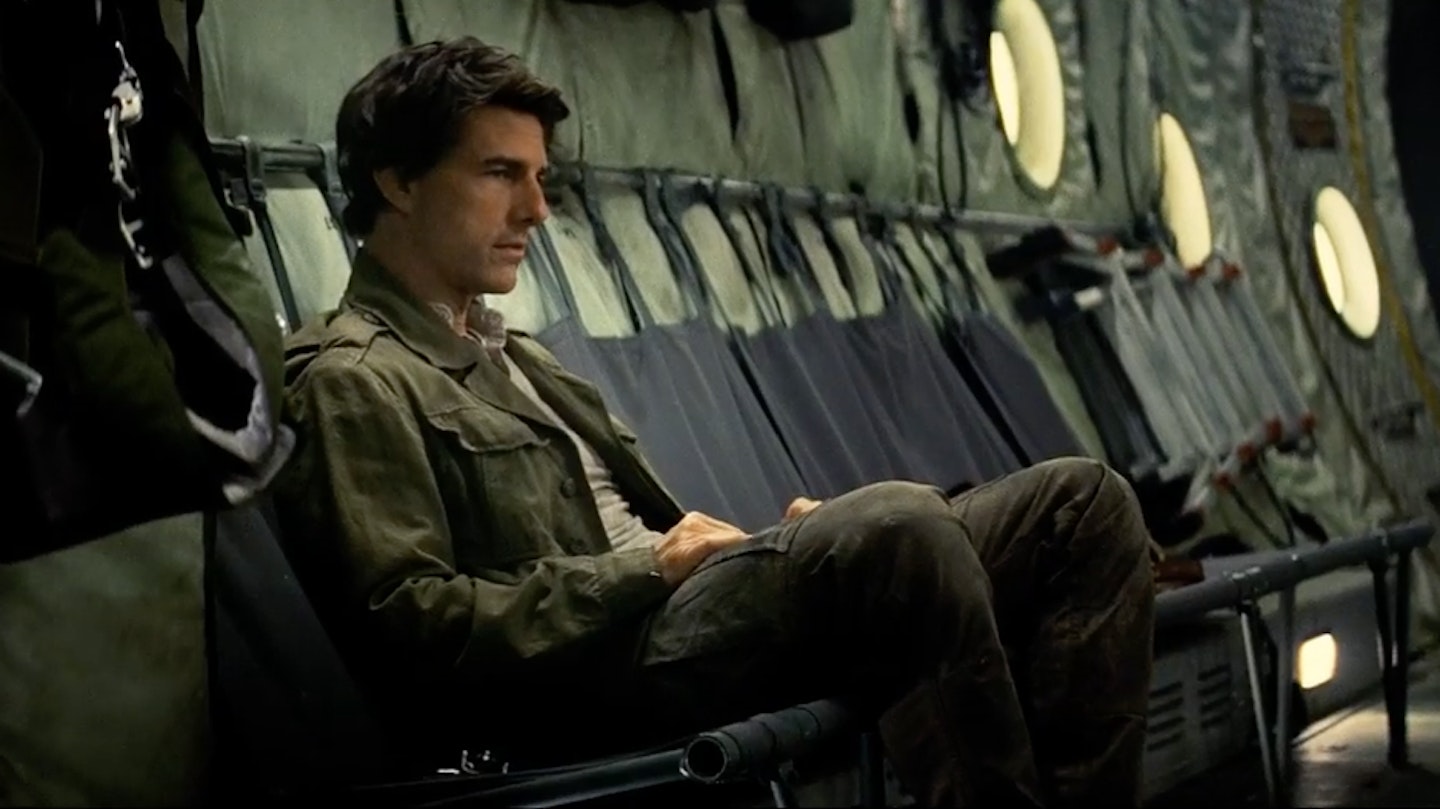
I have been one of many writers on it, yes. I think I’ve been on this movie for five years now. Between developing it and the many phases that went through, and then Tom Cruise joining us and those new phases... I have to say though, when we were doing the main shooting I really kind of enjoyed not being the writer. That was kind of a delight for me. Mostly because it’s very challenging to be the writer and the director of a movie. As a director you have to be at 30,000 ft objectively looking at everything, wondering if you’re making the right objective, emotional, story, character choices. As the writer, while you’re asking all of those same questions, you’re also forced by the nature of what writing is to be looking at everything under a microscope. That’s the difference between the two jobs. So I really enjoyed hovering above it, seeing the chessboard in a bigger picture kind of way. But I think all my experience of writing the movie beforehand and then working on it as we’re doing now has allowed me to wear both hats comfortably.
As a director this is your follow-up to People Like Us****. What’s that learning curve been like?
(Laughs) I guess… for me… I just love the monsters. I just love them. And an emotional story is an emotional story no matter how big or small it is. I loved making People Like Us, and I kind of got that out of my system and felt that I was ready for something bigger next. The challenge in a way, for me, was finding and retaining an intimate story when the scale of the movie gets larger. It just felt like the next right step. I’ve had the fortune to work with extremely talented directors on some really big movies, getting the benefit of really getting to watch them work and work in different ways and see what strengths they bring to the table. I asked a director once what the secret of it all was, and he said you have to be so prepared that you are willing to throw all your preparation away in the moment when you see something better. That’s a phenomenal piece of advice. It’s been my compass through this process. But you can really only do that if you’re prepared. You can't wing it.
Is there much that you’ve thrown away in the moment?
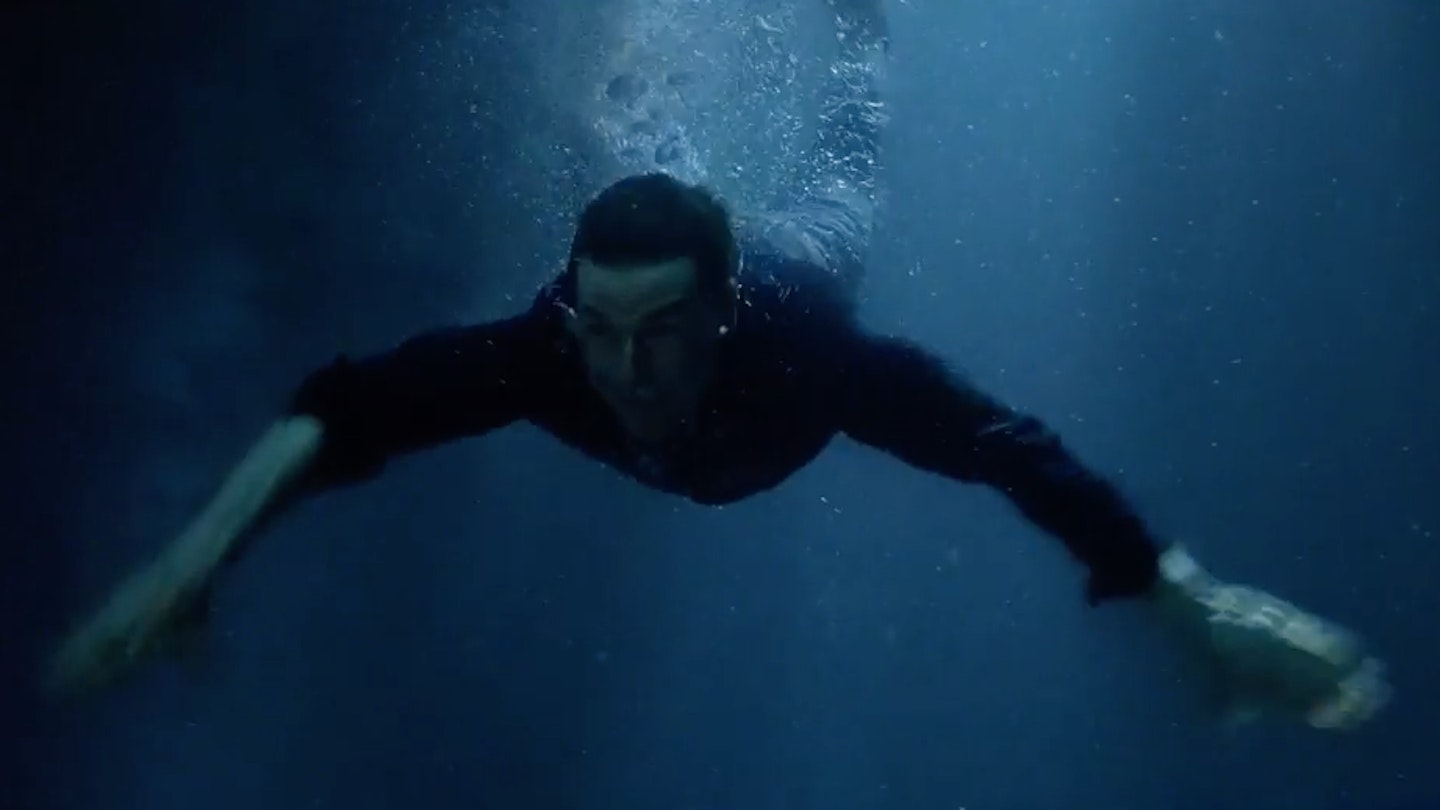
Oh absolutely! One of the great joys of working with Tom is that he’s such a present actor. When you’re working on a scene, both in the script phase and also in the moment, you look around and you wait for the lightning bolt to strike you and based on your instincts tell you what the right thing to do is here. And that can result in anything from a change of dialogue to the realisation that what you thought was a dramatic scene should actually have some humour. And maybe if you stage it this way it’s funnier, or if you put the camera here it tells a different story. That stuff is kind of everything when you’re a director.
What was it about The Mummy that attracted Cruise? A fantasy-horror – if that’s what we’re calling it - isn’t an obvious Tom Cruise film.
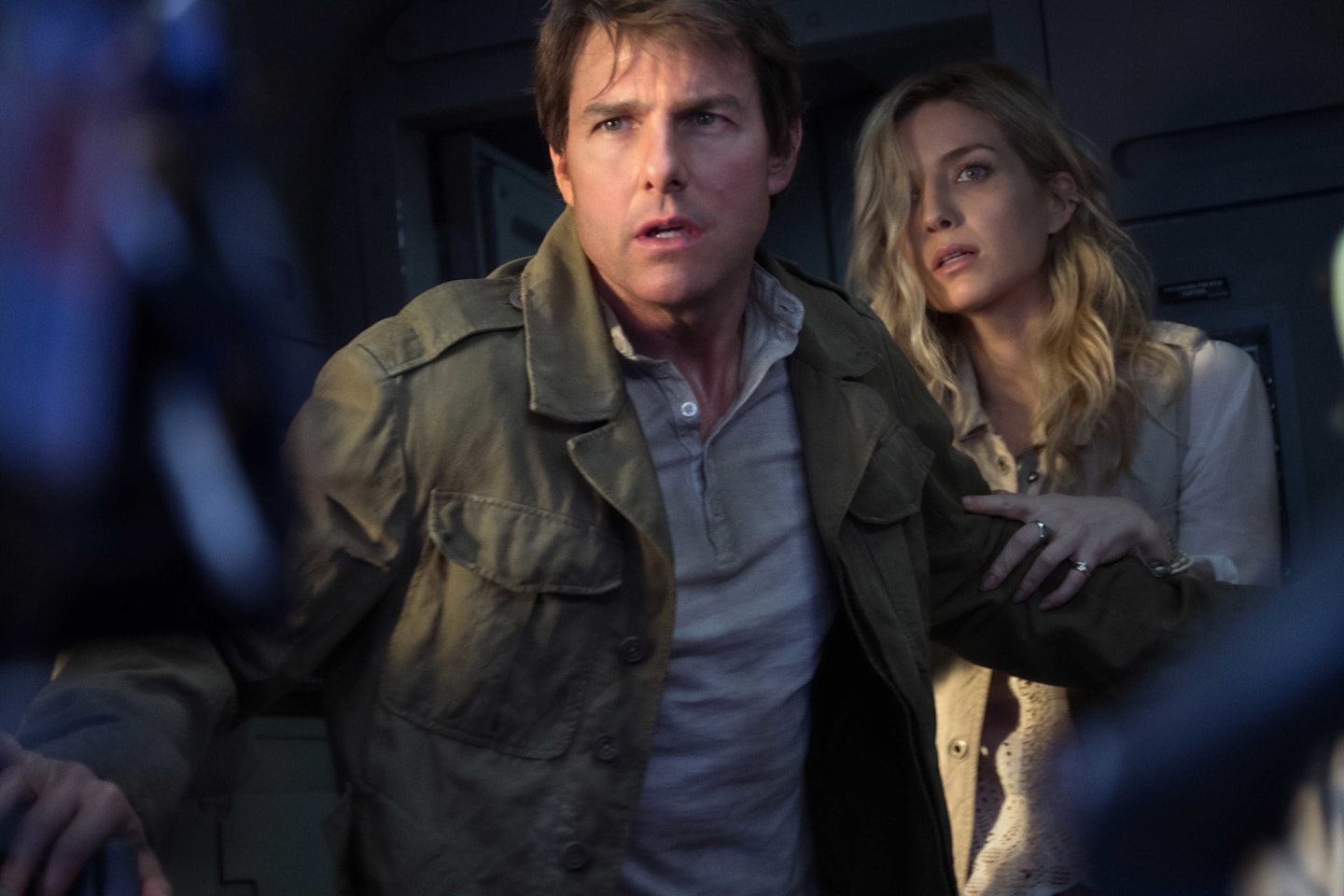
Yeah, I think you answered your own question there. Part of it is definitely that he was attracted to it because it’s not an obvious Tom Cruise film. He makes such consistently amazing career choices largely based on defying expectations. So that was one standard for him. The other was, I think, that he loves the monster movies as much as I do. We both had such specific stories about watching those movies as children and hiding under the bed or the seats of the theatre or whatever. When you love a genre that much it becomes a part of you and you want to tell those stories. I think that’s a huge part of what attracted him to the movie. We worked together on Mission: Impossible III and had a wonderful time together, and I was just beyond grateful that a movie star of that magnitude would allow a second-time director to direct him.
And we have Russell Crowe playing Dr Jekyll. There was never a Universal Jekyll & Hyde movie (apart from the Abbot and Costello one) so it’s interesting that you’re adding to the pantheon here.
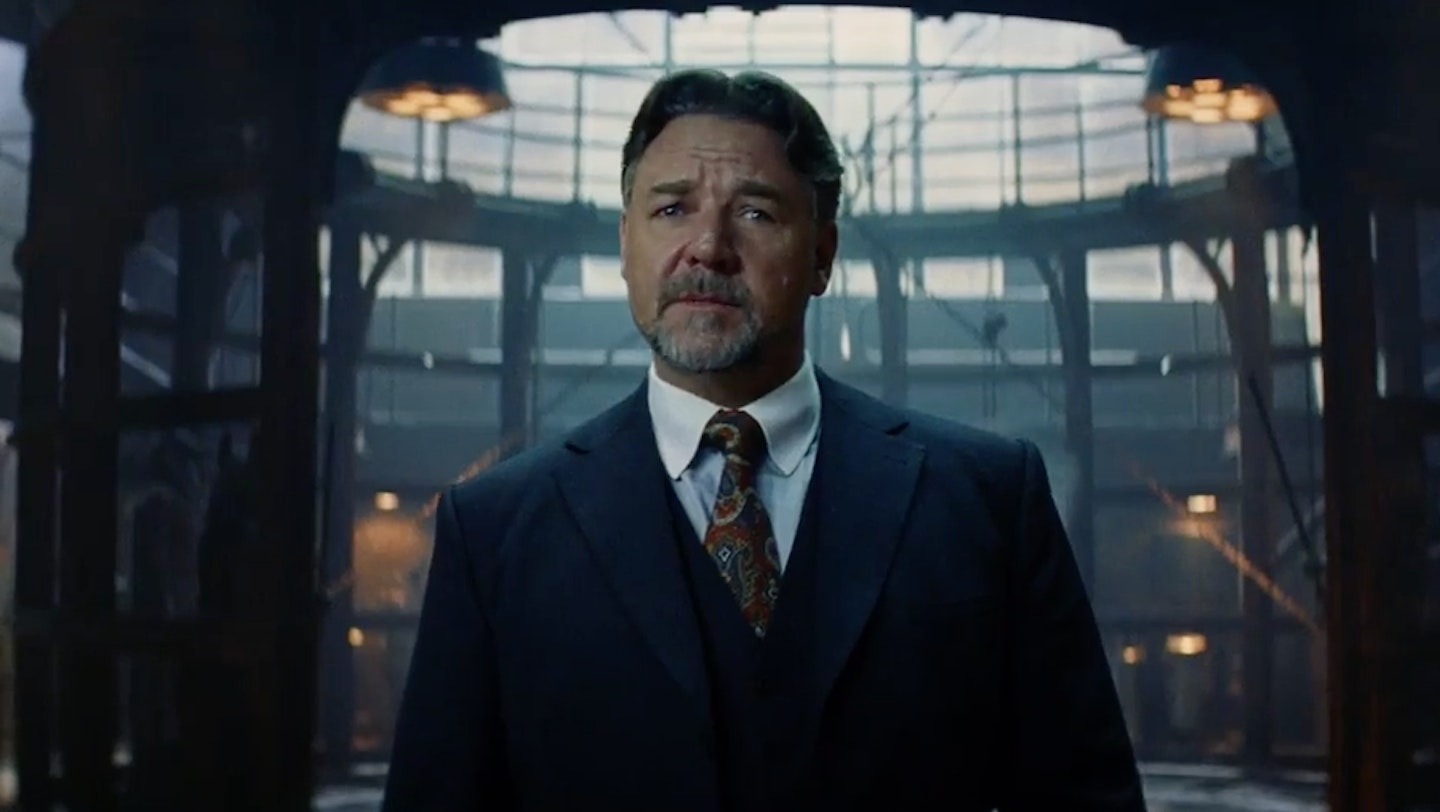
Yes. I think you’ll see things that are familiar but also see things that are very surprising. I think that there’s a very specific reason that Jekyll’s in the movie. I’m not going to spoil it for you, but in many ways being a man with a dual nature reflects what our hero is going through. What I didn’t want to do, what I don’t want to see as an audience member, is to throw another monster into this movie because I wanted to do a monster pile-on, because we’re theoretically creating a monster universe. I have no interest in that at all. None of us do. But as the story evolved it became clear that there was a character that was required to tell very specific parts of the story and also in some ways be a mirror to our protagonist. I guess the thing I always loved about the character of Jekyll and the Stephenson novel is that it’s such a character story. It’s strange that he wasn’t among the Universal monsters. To me it definitely falls into that category of a character-based gothic horror.
What was your thinking behind making the Mummy female this time?
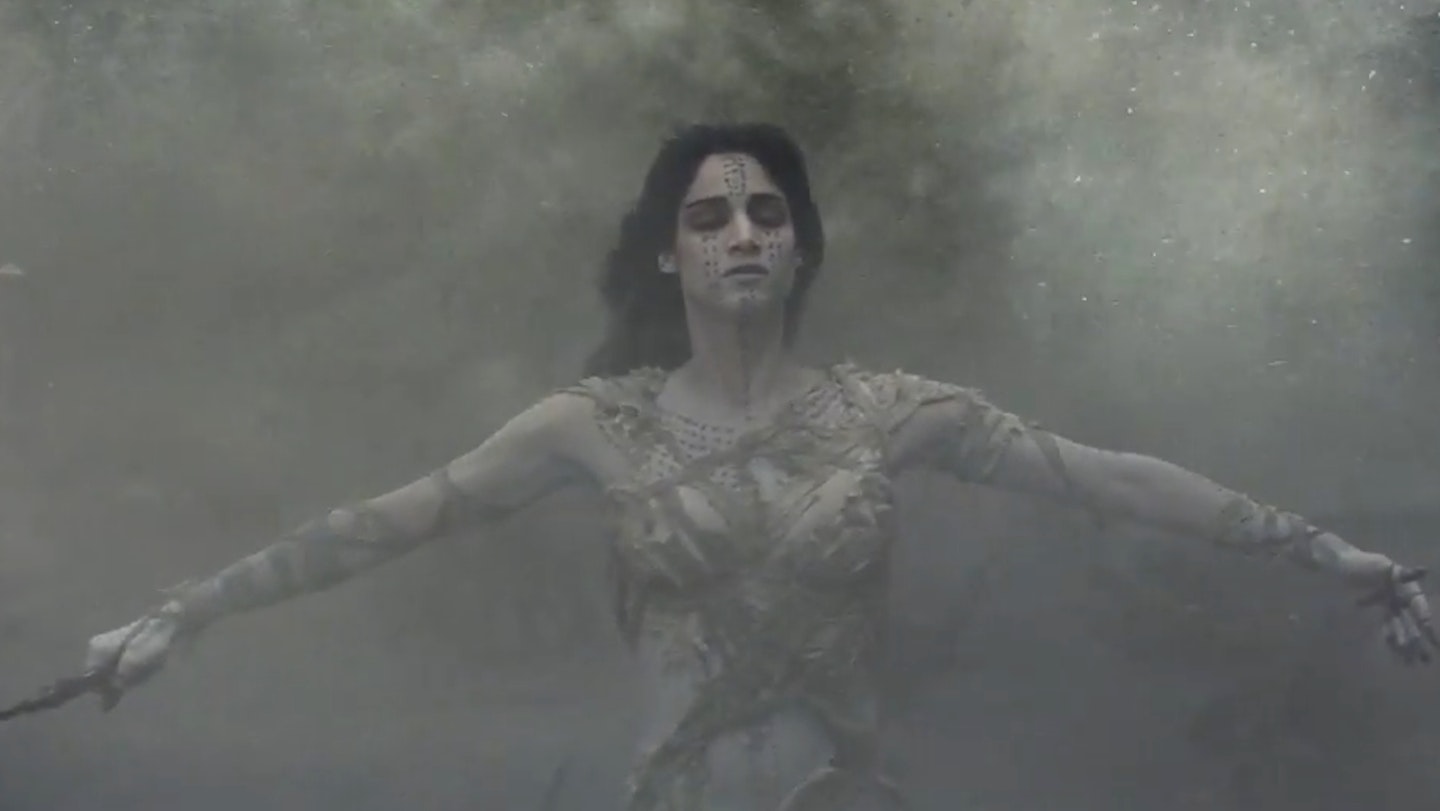
There were a couple of reasons behind that. When I was developing the script there were several versions of the story that had involved a male Mummy. Once I came aboard as the director and I started thinking about the movie in those terms and really designing this character, I felt like it wasn’t different enough. It didn’t feel original enough, and I didn’t yet feel like there was a reason to make the movie. There had been this voice in my head for, like, maybe a year, telling me I should make it a woman. And I didn’t really listen to it, because I was so down a path. And then I saw the very end, post-credits scene of X-Men: Days Of Future Past that was leading into X-Men: Apocalypse, and it was literally the design that I had for my Mummy. The origin story I had at that point was that my Mummy was actually a mutant, and it started as a child and we watched his growth over years. But when I saw that_sequence I went, 'Okay, I’m done with that.' There was no version of me wanting to proceed with that. And it was actually a blessing, because that was the point where I realised I had to make her a woman, and from that point on there was suddenly a reason to do it again. I got so excited about it and it opened up a whole new world of story possibilities that I hadn’t yet seen in any Mummy movie.
When I figured out it had to be a woman, I figured out at pretty much the same moment that it had to be Sofia Boutella and nobody else. There was no other option for me. I thought her performance with so little dialogue in Kingsman was pretty mesmerising, and for the Mummy to work, she has to physically and emotionally undeniably amazing. I caught so much going on in Sofia’s eyes in Kingsman. I thought she was just fascinating. When she said yes to The Mummy I really felt like I was going to be able to bring something really different to the table.
You’ve touched on this already, but can you elaborate a bit on how you think this new 'Monsterverse' will work going forward? This one is the beginning, right? It’s not connected to Dracula Untold****?
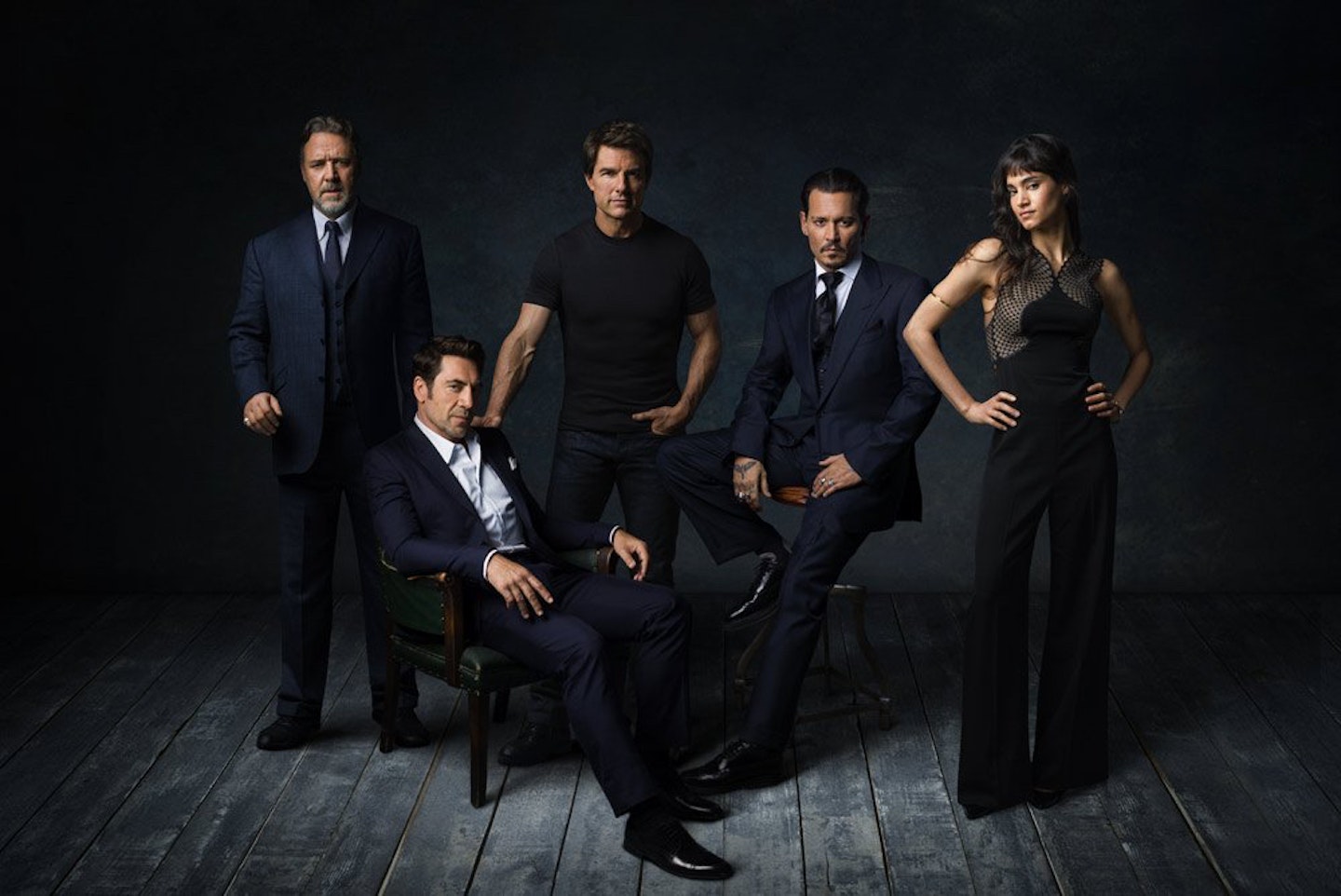
It’s not connected to that, no. And I say that with no judgement: it’s just not connected to it because we have different plans for Dracula… Okay, here’s what I know. I can only base the choices on what I would want to see as an audience. I don’t like being force-fed a 'universe'. I resent it. It repels me instead of attracts me. I can’t deny that I love these monsters, and I think if you look at cinema history you’ll see that the Universal monsters were in fact the first 'cinematic universe', pre-dating Marvel by many decades. Whether it happened on purpose or by accident I don’t know, but Universal did something very smart. They had already done a Frankenstein movie and sequels, and The Wolf Man, and then they said, 'Well, we really don’t know what else to do with these characters: why don’t we put them together?'
The genius of that was the audience already had deep relationships to both of those characters. If you’d started the whole universe with Frankenstein Meets The Wolf Man and you had no pre-existing relationship to either of those characters, you probably wouldn’t feel the same way. So I really believe the only way to build this universe correctly is to make great individual monster movies and then let the universe happen organically if and when that time comes.
The Mummy is out now.
